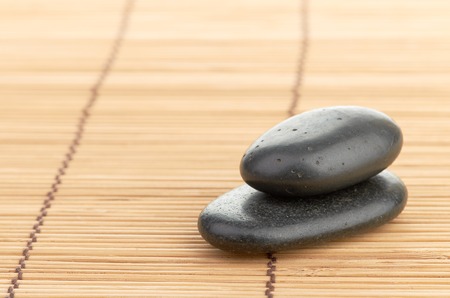Introduction to Qi: Origins and Core Concepts
Qi, pronounced “chee”, stands as a cornerstone of traditional East Asian philosophies and is integral to the practice of Chinese medicine. Within these ancient frameworks, Qi is understood as the vital force or energy that permeates all living things, animating both the body and the natural world. The origins of Qi can be traced back thousands of years to classical Chinese texts, where it is depicted as an essential, dynamic substance flowing through meridians in the human body. This concept underpins practices such as acupuncture, qigong, and herbal medicine, which aim to balance and cultivate Qi for health and wellbeing. In the British context, the interpretation and application of Qi have evolved through encounters with alternative medicine, often blending Eastern ideas with Western sensibilities. Understanding Qi’s foundational significance in its original cultural setting provides a valuable lens for appreciating how it has been reimagined within British alternative medicine traditions.
2. Early Encounters: Qi in British Historical Context
During the eighteenth and nineteenth centuries, the concept of Qi began to filter into British consciousness through a convergence of trade, exploration, and burgeoning academic curiosity. The earliest encounters with Qi were largely shaped by British merchants, missionaries, and medical professionals who travelled to China and returned with reports that both fascinated and perplexed their contemporaries. These pioneers often struggled to reconcile the intangible qualities of Qi with the prevailing scientific paradigms rooted in Enlightenment rationality.
Tracing the First Impressions
British explorers and scholars initially encountered Qi as part of a broader engagement with Chinese medicine, philosophy, and culture. Reports from figures such as Sir George Staunton, who accompanied Lord Macartney’s embassy to China in 1793, introduced descriptions of Chinese healing practices where Qi was referenced as an essential life force. However, these early accounts often filtered Qi through a Western lens, interpreting it as a metaphor for physical processes such as air or circulation rather than recognising its holistic spiritual dimensions.
Comparative Interpretations by Early Figures
| Figure | Role | Interpretation of Qi |
|---|---|---|
| Sir George Staunton | Diplomat & Sinologist | Saw Qi as analogous to “vital air” or the breath essential for life. |
| Missionary Physicians | Medical Practitioners | Tended to compare Qi with “nervous energy” or fluid within Western anatomical frameworks. |
| Orientalist Scholars | Academic Interpreters | Viewed Qi through translations of classical Chinese texts, often reducing its meaning to material phenomena. |
Cultural Exchange and Misinterpretation
The initial British interpretations of Qi were inevitably shaped by linguistic barriers and cultural assumptions. Many early scholars attempted to map Qi onto familiar European concepts such as ‘humours’ or ‘ether’, leading to misunderstandings that persisted well into the Victorian era. Despite these challenges, the presence of Qi in travelogues and academic treatises provided fertile ground for alternative medicine practitioners in Britain to experiment with new ideas about health and vitality. Over time, these early encounters laid the foundation for more nuanced discussions about Qi within British alternative medicine circles.
![]()
3. Qi and British Alternative Medicine Movements
Within the rich landscape of British alternative medicine, the concept of Qi has been both appropriated and adapted, reflecting a unique interplay between Eastern philosophies and Western health paradigms. As traditional Chinese ideas began to reach British shores in the twentieth century, practitioners and enthusiasts alike sought ways to integrate Qi into existing alternative practices, often imbuing it with new meanings that resonated with local sensibilities.
Acupuncture: Bridging Cultures
Acupuncture became one of the earliest touchpoints for Qis introduction to Britain. British practitioners initially encountered acupuncture through translated texts and visiting Chinese doctors. Over time, they developed their own interpretative frameworks, sometimes blending Qi with concepts familiar to Western audiences—such as “energy flow” or “vital force.” This approach made acupuncture more accessible, positioning it not only as an exotic therapy but as a logical extension of holistic health traditions already present in Britain.
Tai Chi: Movement, Mindfulness, and Social Spaces
The adaptation of Tai Chi within British communities further illustrates how Qi was reimagined in a local context. Emphasising gentle movement, mindfulness, and balance, Tai Chi classes in parks and community centres became popular from the late twentieth century onwards. Here, Qi was often described in terms of cultivating personal well-being, stress reduction, and community connection—values strongly aligned with contemporary British interests in mental health and social cohesion.
Holistic Health Therapies: A New Vocabulary for Vitality
Beyond acupuncture and Tai Chi, the notion of Qi permeated other holistic therapies across Britain. Practitioners of massage, reflexology, and even modern yoga adopted Qi-related language to describe energy pathways or blockages within the body. In doing so, they crafted a vocabulary that felt both ancient and newly relevant—a bridge between global wellness traditions and evolving British attitudes towards health. Through workshops, publications, and informal gatherings, these communities fostered an inclusive dialogue around Qi that continues to shape alternative medicine practice today.
4. Transformation and Translation: Shaping the British Understanding of Qi
The journey of Qi from its Chinese philosophical origins to a concept within British alternative medicine is marked by a complex web of transformation and translation. As practitioners, scholars, and patients in Britain encountered Qi, they faced a series of challenges and misconceptions that both complicated and enriched its integration into local health practices.
Challenges in Translating Qi
One of the most significant hurdles has been linguistic and conceptual translation. The term “Qi” itself has no direct equivalent in English or Western biomedical vocabulary. Early translators struggled to find suitable renderings—ranging from “vital energy” to “life force”—each capturing only fragments of the original meaning. This ambiguity led to diverse interpretations among British practitioners, with some viewing Qi as metaphorical, while others regarded it as a tangible bio-energetic phenomenon.
Common Misconceptions
| Misconception | Origin/Reason | Impact on British Practice |
|---|---|---|
| Qi as merely “energy” | Simplification for Western audiences unfamiliar with Chinese philosophy | Led to an overly mechanistic view, sometimes disconnected from holistic roots |
| Qi as mystical or unscientific | Lack of empirical evidence within Western medical frameworks | Marginalised Qi-based therapies within mainstream healthcare discourse |
| Qi flows only through “meridians” like blood in veins | Literal interpretation of acupuncture charts without cultural context | Narrowed understanding of Qi’s broader philosophical significance |
Creative Adaptations and Localisation
Despite these challenges, British alternative medicine communities have shown remarkable creativity in adapting Qi to fit local needs. Acupuncture clinics often blend traditional diagnostic methods with modern wellness language, while Tai Chi and Qigong classes are framed as both fitness regimes and meditative practices. Some practitioners draw parallels between Qi and concepts from Western traditions—such as “humours” or “vital spirit”—fostering a sense of continuity rather than contrast.
Cultural Translation: Bridging Philosophies
This ongoing transformation has not been a one-way process. British interpretations of Qi have prompted Chinese medicine practitioners to reflect on their own traditions, fostering dialogue across cultures. Academic exchanges, public workshops, and collaborative research projects have further refined the local understanding of Qi, encouraging nuanced perspectives that honour both heritage and innovation.
The Evolving Perception of Qi in Britain
Ultimately, the British experience illustrates that translation is never merely about words—it is about making space for new ways of seeing health and vitality. By engaging with the complexities, misconceptions, and creative translations surrounding Qi, British alternative medicine continues to craft a uniquely local interpretation that remains open to further evolution.
5. Contemporary British Practices: Integrating Qi Today
In present-day Britain, the concept of Qi has journeyed far beyond its Eastern roots, finding a dynamic place within the evolving landscape of alternative medicine and holistic well-being. This integration is particularly visible in modern wellness trends, clinical settings, and even public health initiatives, where ancient ideas are thoughtfully adapted to meet contemporary needs.
Qi and Modern Well-Being Trends
Across the UK, Qi is increasingly referenced within popular practices such as yoga studios, mindfulness workshops, and holistic therapy centres. Many British practitioners embrace the subtle energy philosophy of Qi, weaving it into classes focused on breathwork, movement, and relaxation. For instance, Tai Chi and Qigong sessions—once considered niche—are now regular features in leisure centres from Bristol to Edinburgh. These activities are often marketed as tools for enhancing vitality, reducing stress, and fostering balance, resonating with a culture that values both tradition and innovation.
Clinics and Professional Adaptation
Within professional clinical environments, British acupuncturists and complementary therapists frequently discuss Qi with their clients—not always in traditional terms, but rather as a metaphor for holistic health or energetic flow. The language is carefully chosen: references to “energy blockages” or “restoring balance” allow for accessibility without alienating those unfamiliar with Chinese medicine. Regulatory bodies such as the British Acupuncture Council encourage evidence-based practice while respecting the historical interpretations of Qi that underpin much of their methodology.
Qi in Public Health and Community Initiatives
The influence of Qi extends into public health domains as well. Community wellbeing programmes in cities like Manchester and London now incorporate Eastern-inspired practices alongside Western approaches. NHS trusts have piloted projects integrating mindfulness meditation and gentle exercise rooted in Qi-based principles for managing chronic pain or anxiety. While these initiatives may not always reference “Qi” explicitly, they adopt its underlying philosophy: nurturing a harmonious relationship between mind, body, and environment.
Ultimately, the British interpretation of Qi today is shaped by a blend of reverence for tradition and pragmatic adaptation. As society grows ever more diverse and health-conscious, the ongoing dialogue between East and West continues to inform how energy, balance, and vitality are understood—and lived—across the UK.
6. Cultural Reflections and Debates
The conversation surrounding Qi within British alternative medicine is far from static; it is a dynamic and evolving cultural dialogue. As traditional Chinese concepts like Qi become increasingly woven into the fabric of British health and wellness, they invite both enthusiasm and scrutiny from practitioners, patients, and scholars alike.
Negotiating Tradition and Modernity
Central to this ongoing debate is the question of how ancient philosophies can be respectfully adapted without losing their essence. In Britain, some practitioners champion an authentic transmission of Qi theory, seeking to preserve its original context and methods. Others advocate for reinterpretation, blending Qi with contemporary scientific models or aligning it with Western holistic approaches. This negotiation reveals a broader cultural tension between reverence for tradition and the drive for innovation.
Qi as a Cultural Bridge
For many, Qi serves as more than just a therapeutic concept—it becomes a bridge between cultures. The British public’s growing openness to diverse healing traditions reflects broader shifts in societal attitudes towards multiculturalism and pluralism. However, these cross-cultural exchanges also generate important questions about appropriation, authenticity, and ethical practice within alternative medicine circles.
Debates in the Public Sphere
The inclusion of Qi in mainstream discussions has sparked lively debates in the media and among healthcare professionals. While some celebrate its integrative potential, critics challenge its scientific validity or question whether it can be meaningfully separated from its philosophical roots. These debates are often shaped by larger conversations about evidence-based medicine and the role of belief within healing practices.
Broader Impact on British Health Culture
Ultimately, the historical interpretations of Qi have contributed to a richer and more diverse landscape of health and wellbeing in Britain. They encourage reflection on what constitutes healing, how we understand vitality, and the ways in which different worldviews can inform one another. As British society continues to grapple with these themes, the discourse around Qi remains a powerful lens through which to examine evolving attitudes towards body, mind, and culture.
This ongoing cultural engagement ensures that the legacy of Qi in British alternative medicine is not merely a static import but an active site of dialogue—one that continues to shape both personal practice and collective understanding within the UK’s vibrant wellness community.


